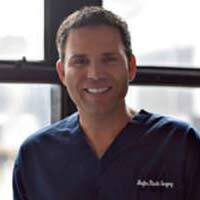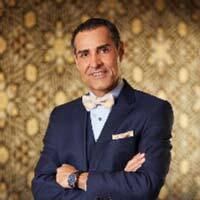In 2019, the most recent year with non-Covid-affected data, there were 11.36 million plastic surgery procedures performed in the US. Many of these procedures were ones that the general public may be aware of such as breast augmentation, liposuction, tummy tucks, or facelifts. While those relatively well-known procedures make up the bulk of plastic surgeries, there are many more procedures that are routinely performed that seem rather unusual.
“Most plastic surgeries seem unusual to people not in need of the procedure or for those not in the medical field. Breast implants are very common now, but in the 1980s must have seemed very unusual at first for the general population,” says Dr. David Shafer, a board-certified plastic surgeon. “Procedures may seem unusual to the general population, but can actually be very commonplace in a plastic surgery office. I think anything that involves body modification people find intriguing and interesting.”
Continue reading to learn about five unusual elective plastic surgery procedures, and the experts who are performing them.
Meet the Experts

Dr. David Shafer is a double board-certified surgeon and plastic surgeon. He completed his surgical training at the Arizona Burn Center in Phoenix, Arizona, where he perfected his reconstructive techniques such as tissue engineering and tissue grafting. He then completed his plastic surgery training at the Mayo Clinic.
Upon completion of that program, he was accepted as an aesthetic surgery fellow at the Manhattan Ear, Eye & Throat Hospital in New York City, which is regarded as one of the most prestigious fellowships in the nation. He established the Shafer Clinic Fifth Avenue in Manhattan, where he cares for patients from across the world.

Dr. Kevin Sadati is a double board-certified plastic surgeon and ear, nose, and throat specialist. He is an actively practicing plastic surgeon who specializes in facelifts, rhinoplasty, and eyelid surgery. In fact, he has performed over 4,000 face and neck lifts in his career.
He completed otorhinolaryngology residency and facial plastic surgery training at the Medical College of Pennsylvania. After those two programs, he completed a general cosmetic surgery fellowship at the American Academy of Cosmetic Surgery of Washington. He has been named one of the best cosmetic surgeons in Orange County by the Orange County Register six years in a row.
Shafer Width and Girth
“I have developed the SWAG (Shafer Width And Girth) procedure for male enhancement. It may seem unusual, but it is actually a very common procedure now for men looking for increased girth and width of the penis,” says Dr. Shafer.
This procedure uses the same FDA-approved products for cheek and lip enhancements. When inserted into the penile shaft, these dermal fillers can significantly increase the girth and moderately increase length. This procedure is performed under topical and local anesthesia and only takes 20 to 30 minutes to complete.
While results can be noticed immediately, it takes one to two weeks for the final results to be evident.
Jaw Advancement
“If somebody has a small chin, many people think the treatment plan is to get a chin implant. Instead, sometimes we go into the jaw, move it forward, and pin it with certain devices to advance the jaw,” says Dr. Sadati.
A jaw advancement surgery can be used to treat medical conditions such as sleep apnea or teeth alignment or can be performed as an elective plastic surgery procedure to optimize facial proportions. This intensive surgery is performed under general anesthesia and can take up to 12 weeks to heal completely.
Brazilian Butt Lift
Popularized by celebrities such as Kim Kardashian and Kylie Jenner, Brazilian butt lifts are still far from mainstream. However, according to the American Society of Plastic Surgeons, they are not entirely uncommon either, with 21,823 Brazilian butt lifts performed in 2020.
Also called gluteoplasty, this procedure takes fat from other places in the body such as the hips, thighs, or belly and places it in the buttocks. Recovery from this procedure is intense as patients cannot sit or lay on their bottom for up to eight weeks. Unlike implants, this procedure produces a very natural-looking outcome. Results are immediately apparent, but it can take up to six months for the final shape to develop.
Male Breast Reduction
Not all breast surgeries are performed on women. Dr. Shafer routinely performs male breast reduction surgery for men who have naturally enlarged chest or excess breast tissue. Excess breast tissue can be caused by pseudogynecomastia, an accumulation of fat, or gynecomastia, a swelling of the breast tissue.
Depending on the cause of the excess tissue, surgery can involve the removal of breast tissue, fat, or skin to achieve desired results. Candidates for this surgery must be at a stable and ideal weight, be at least 18 years old, and have good skin elasticity. Recovery can take up to three months.
Earlobe Contouring
There are several different methods for contouring ears to make them less prominent or more aesthetically proportionate. The primary method is to reduce ear protrusion so that the ear sits closer to the head. Other procedures might be an augmentation because “patients’ earlobes can deflate or lose shape with age. I inject them with a dermal filler such as Vollure to plump them up,” says Dr. Shafer.
Depending on the exact procedure performed, ear contouring can be done under general or local anesthesia. Recovery from an augmentation is relatively quick, while an otoplasty can take several weeks to heal.
Considerations When Choosing Elective Surgery
Deciding to have elective surgery, such as one of the one listed above, is a personal matter for each patient. However, there are several things to look for when choosing a plastic surgeon. According to the American Society of Plastic Surgeons, here are the things you should be looking for:
- Surgeons should be American Board of Plastic Surgery-certified
- The procedure you are considering should be one of the top three most common surgeries a particular surgeon performs
- There are multiple outstanding before and after photographs of patients that are recent
- You have a good connection with the surgeon, and they have an empathetic bedside manner
According to Dr. Shafer, “elective surgeries are very safe. It’s important to consult with a board-certified plastic surgeon who specializes in the area of concern.” He further advises prospective patients to “make sure the surgery is performed in an accredited surgical facility and that proper pre- and post-op care is available from the doctor and their staff.”
Dr. Sadati has a strict policy of only performing surgeries on patients that will help enhance their look and appear natural. “It’s important to cater to people’s needs and honestly try to help them. I know some doctors that patients will go to get their face done and will recommend breast augmentation, tummy tuck, liposuction, and try to add procedures to their bills. They are making patients more insecure and trying to make money off of them,” he says.

Kimmy Gustafson
WriterAt HealthcareDegree.com, Kimmy Gustafson has delivered in-depth and insightful articles since 2019, aiding prospective students to navigate the complexities of choosing the right healthcare degree. Her recent work includes topics such as the ethics of gene editing and physician assistant’s fight for autonomy.
Kimmy has been a freelance writer for more than a decade, writing hundreds of articles on a wide variety of topics such as startups, nonprofits, healthcare, kiteboarding, the outdoors, and higher education. She is passionate about seeing the world and has traveled to over 27 countries. She holds a bachelor’s degree in journalism from the University of Oregon. When not working, she can be found outdoors, parenting, kiteboarding, or cooking.